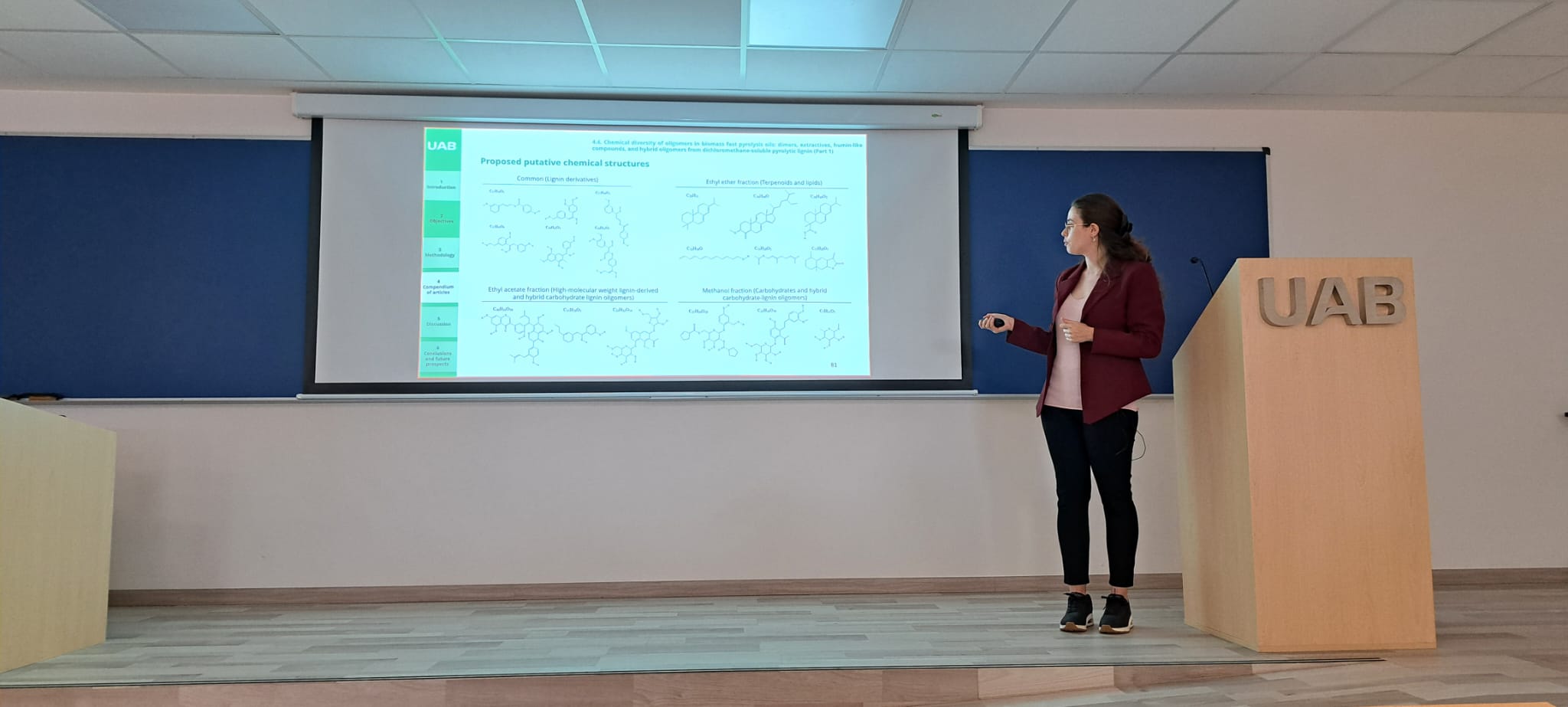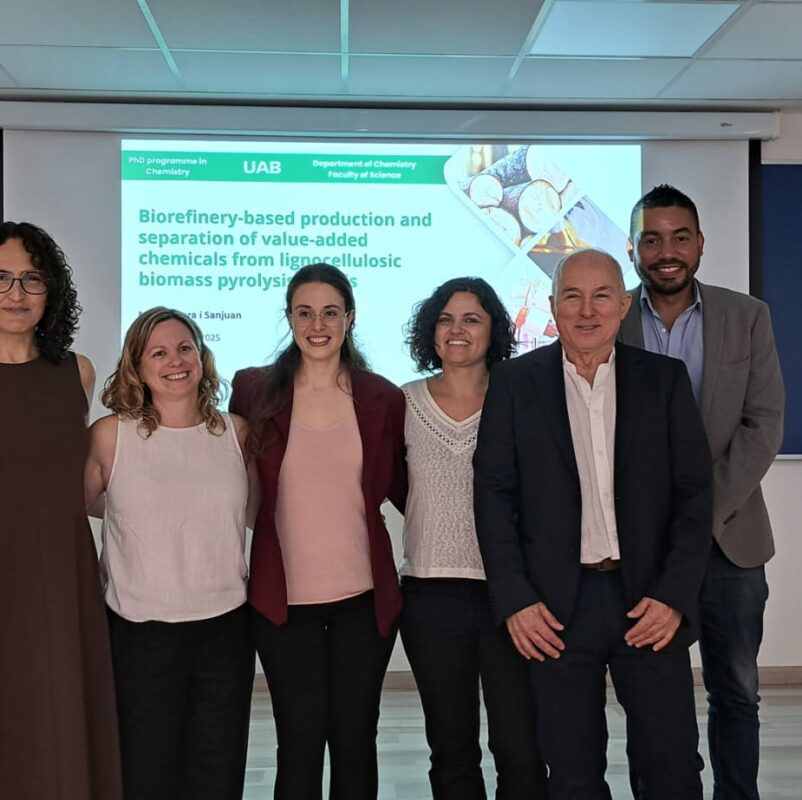The research demonstrates how forest biomass pyrolysis can generate high-value chemicals, reduce dependence on fossil fuels, and open new opportunities for the circular bioeconomy.
Today, at the Universitat Autònoma de Barcelona (UAB), Mireia Mora i Sanjuan defended her doctoral thesis entitled “Biorefinery-based production and separation of value-added chemicals from lignocellulosic biomass pyrolysis liquids”, supervised by Dr. Neus Puy and Dr. Esteve Fàbregas.
The research delved into the development of biorefinery processes to transform forest biomass into high value-added chemicals. The main motivation of the work was the need to find sustainable alternatives to fossil resources, thus contributing to the transition toward a circular bioeconomy and to climate change mitigation.
The thesis used pyrolysis, a thermochemical conversion method that allows biomass to be transformed into bio-oil. This bio-oil contains a wide variety of chemical compounds with potential applications in sectors such as chemicals, pharmaceuticals, and nutraceuticals. Through this process, the researcher explored new ways to obtain and separate these compounds, highlighting the key role that biorefineries can play in a more sustainable future less dependent on fossil fuels.

The territorial context of the study was the Catalan Mediterranean region, characterized by a high presence of unmanaged forest stands and abandoned lands, factors that increase the risk of wildfires. In this regard, the thesis highlighted how creating new markets for low-value forest species, such as Aleppo pine (Pinus halepensis), can become an opportunity to promote more active and sustainable forest management. Moreover, opening these biomass valorization pathways can foster the economic development of rural areas while improving ecosystem health.
“This work highlights that forest biomass not only represents a renewable source for energy generation but also a key resource for producing valuable chemical compounds. In this way, it reinforces the idea that sustainable forest management and technological innovation can go hand in hand to advance toward a more circular, resilient economic model aligned with global environmental objectives,” explains the researcher.
Last modified: 5 October 2025










